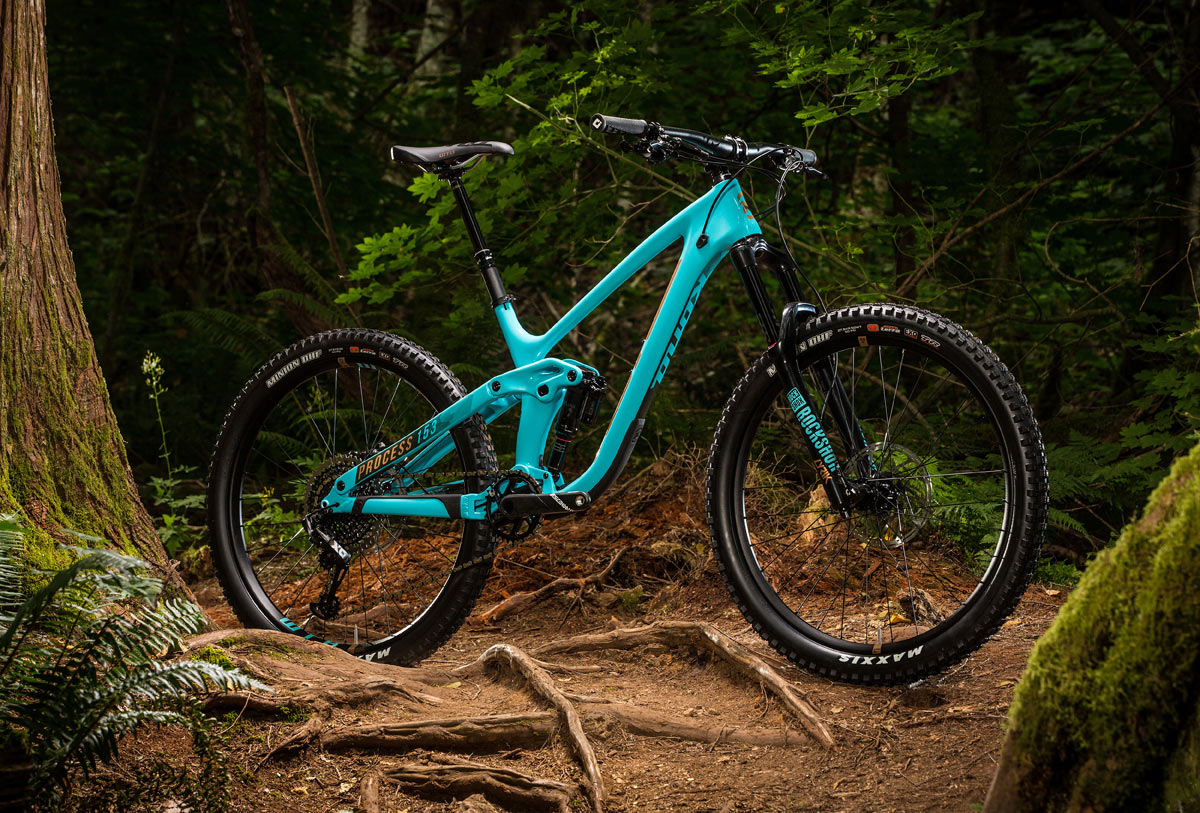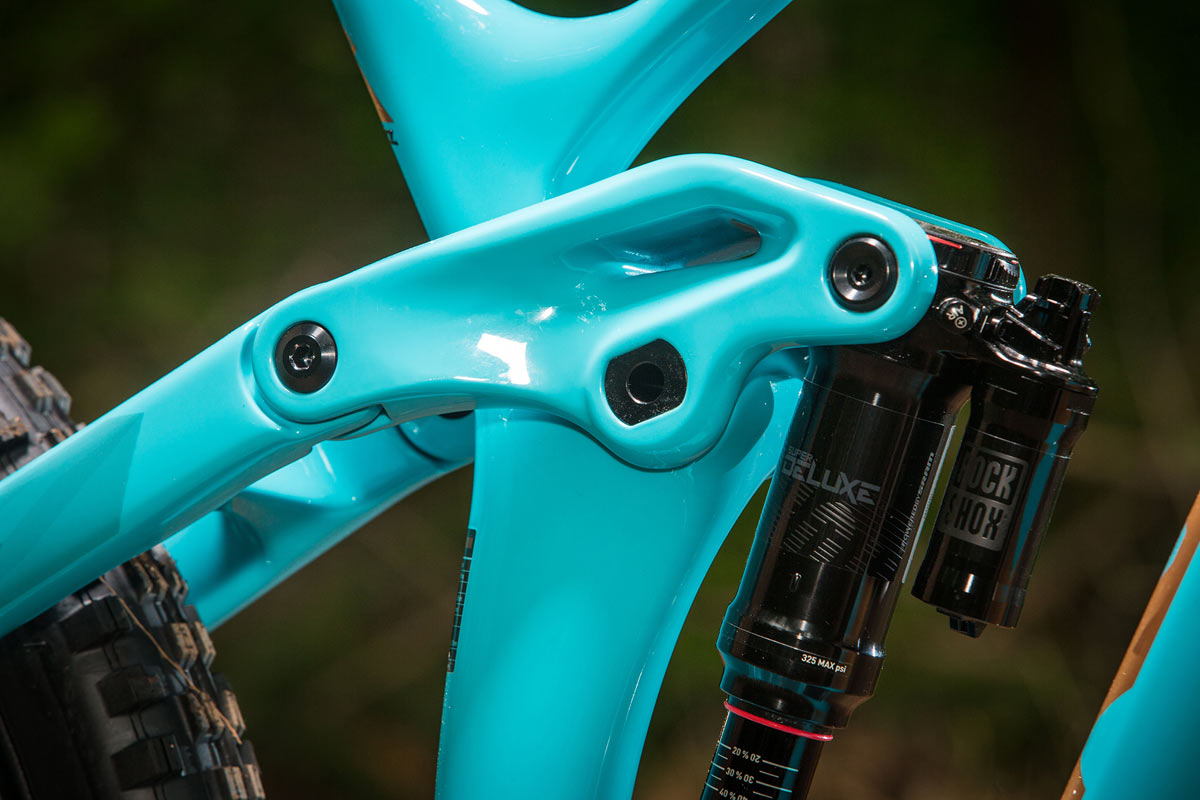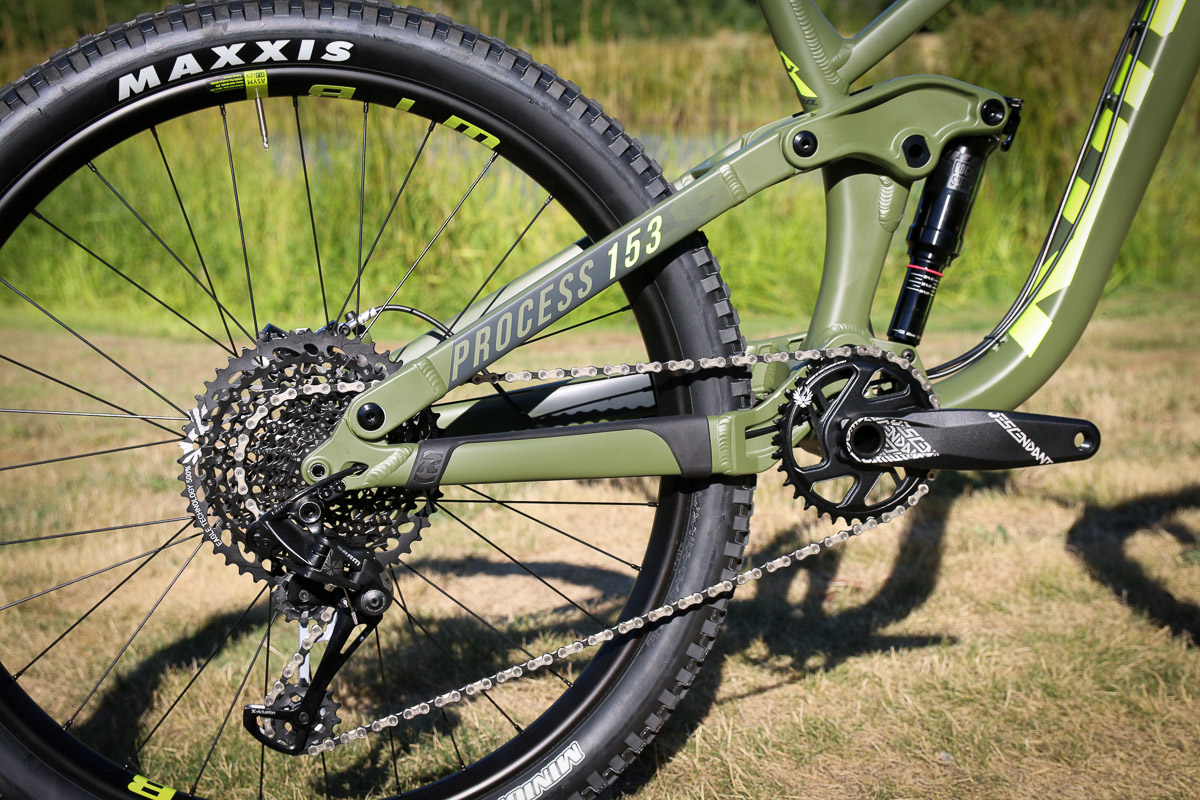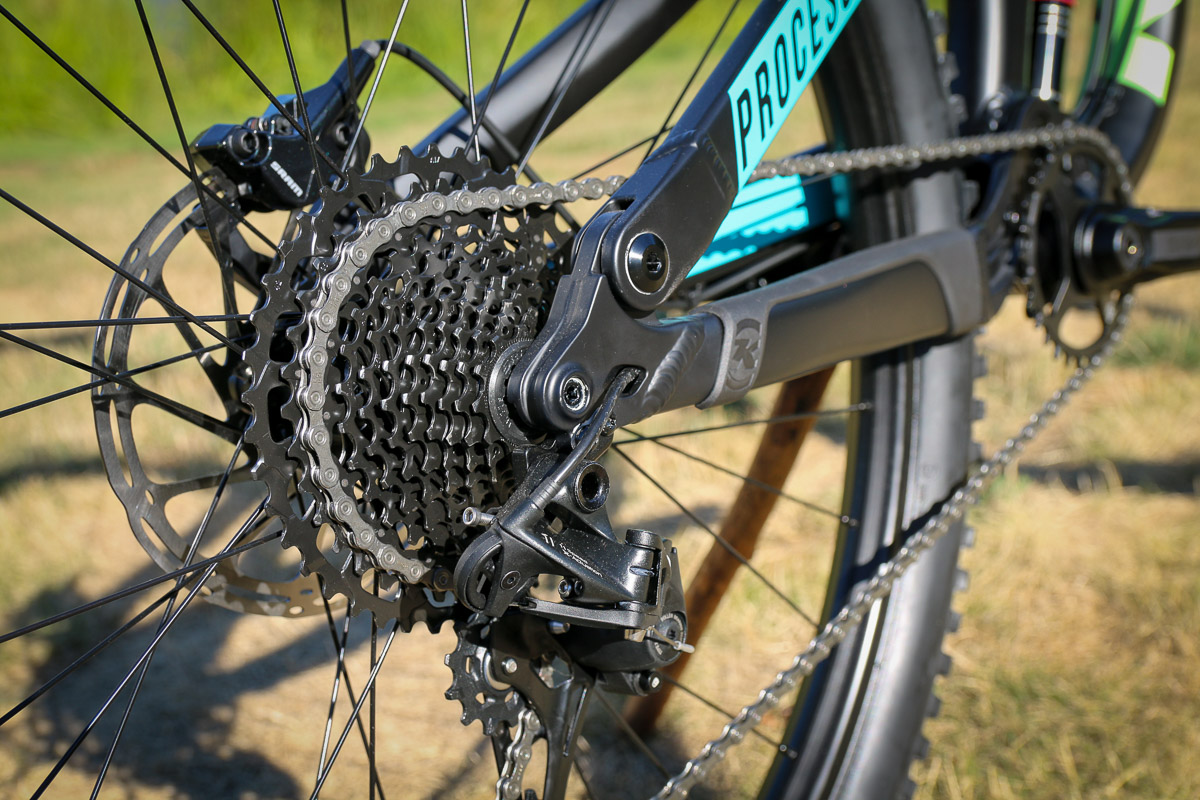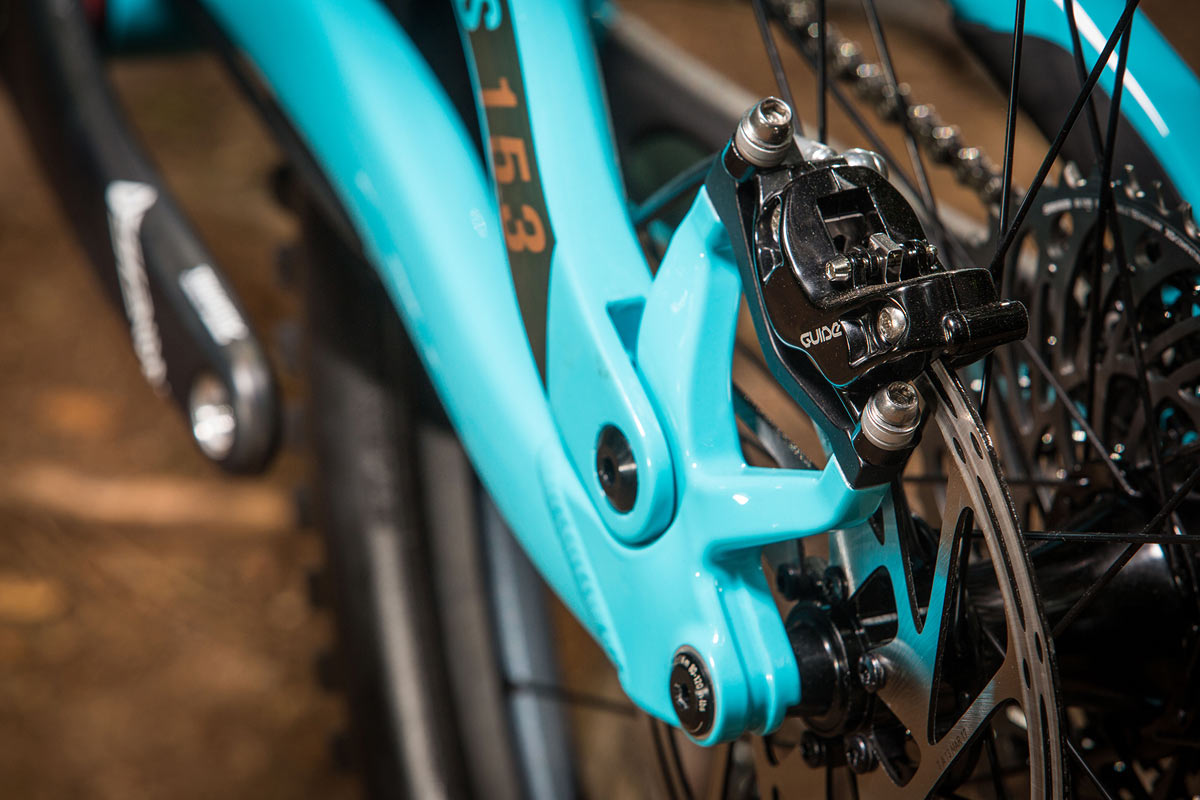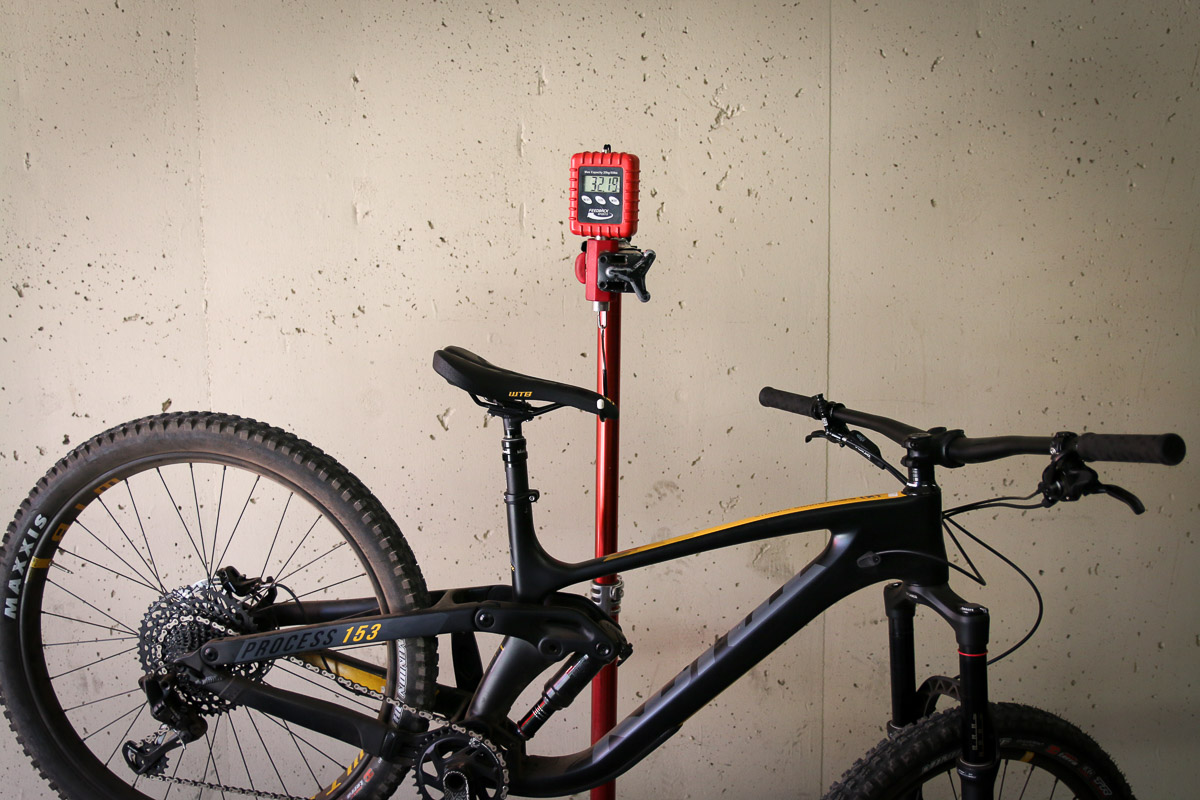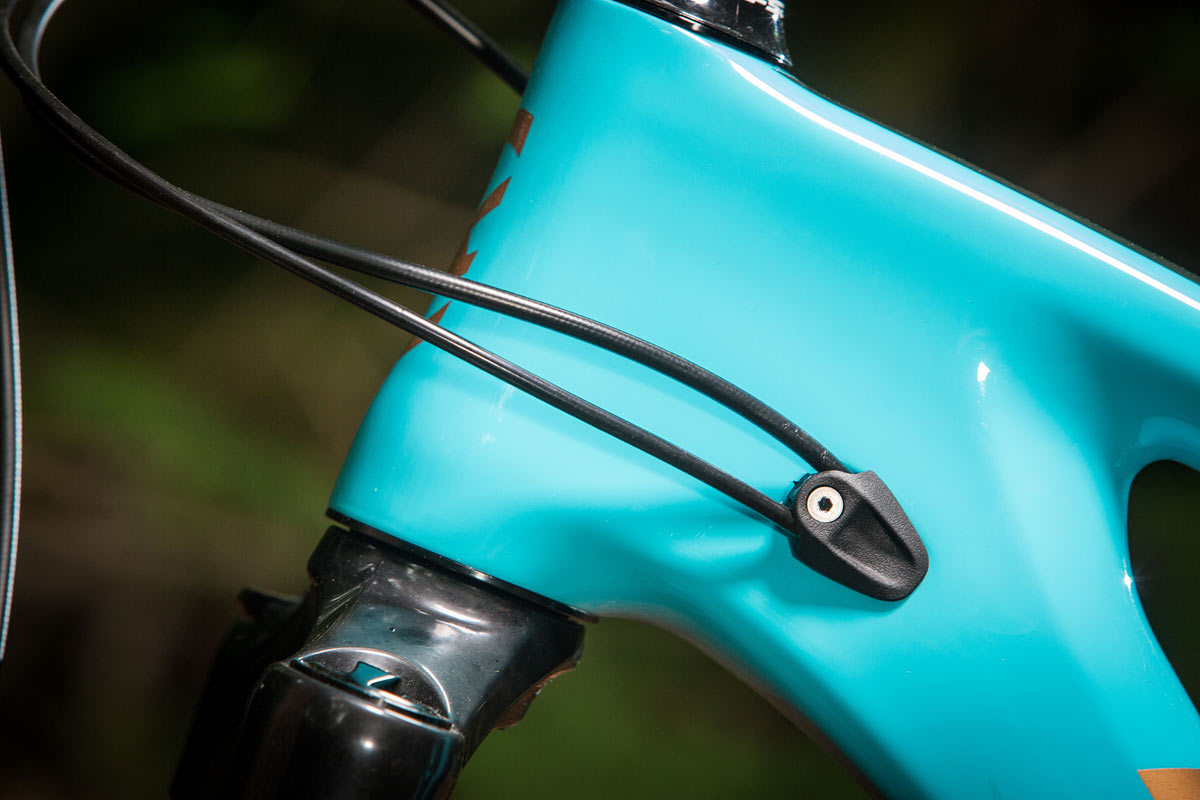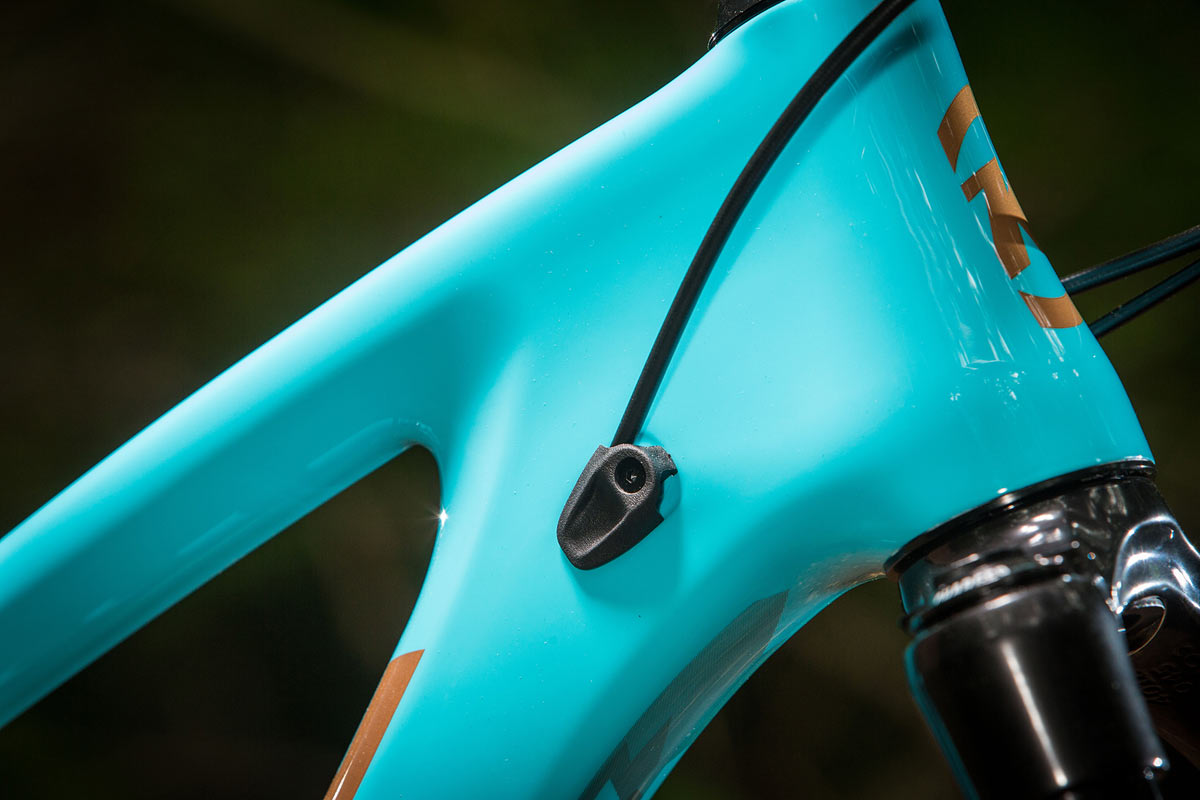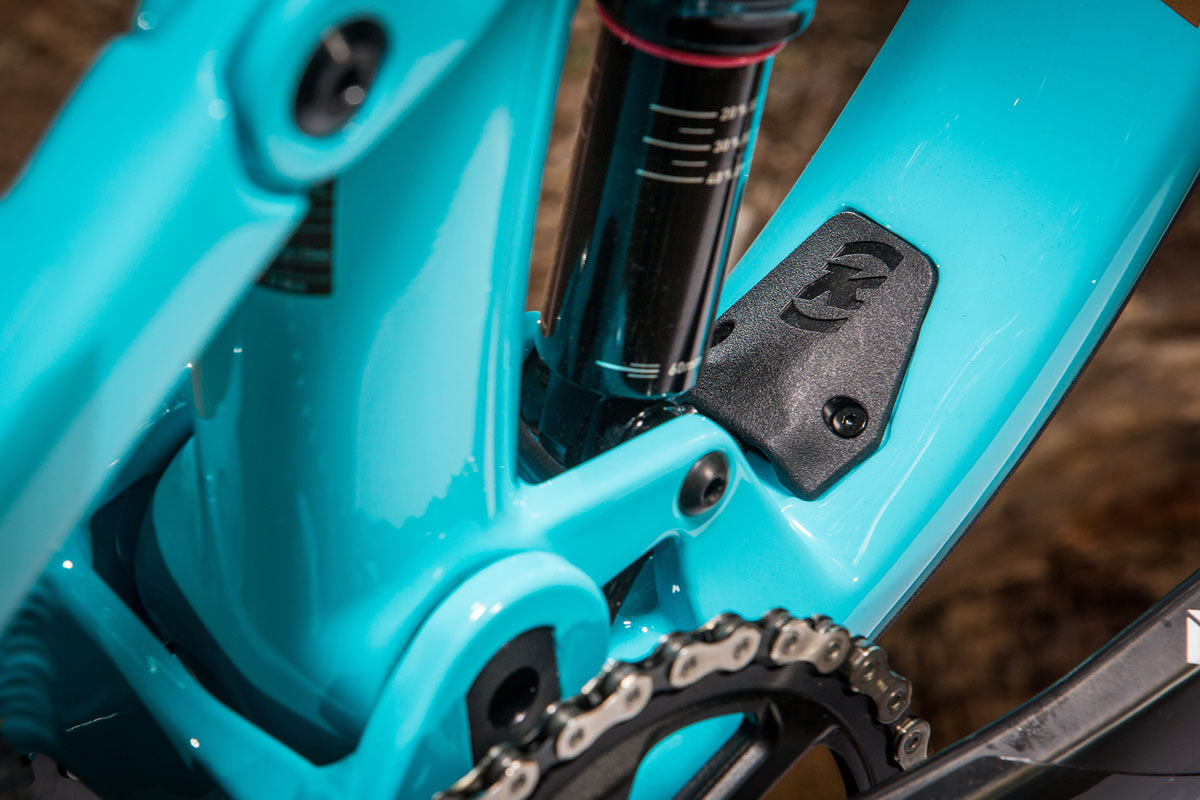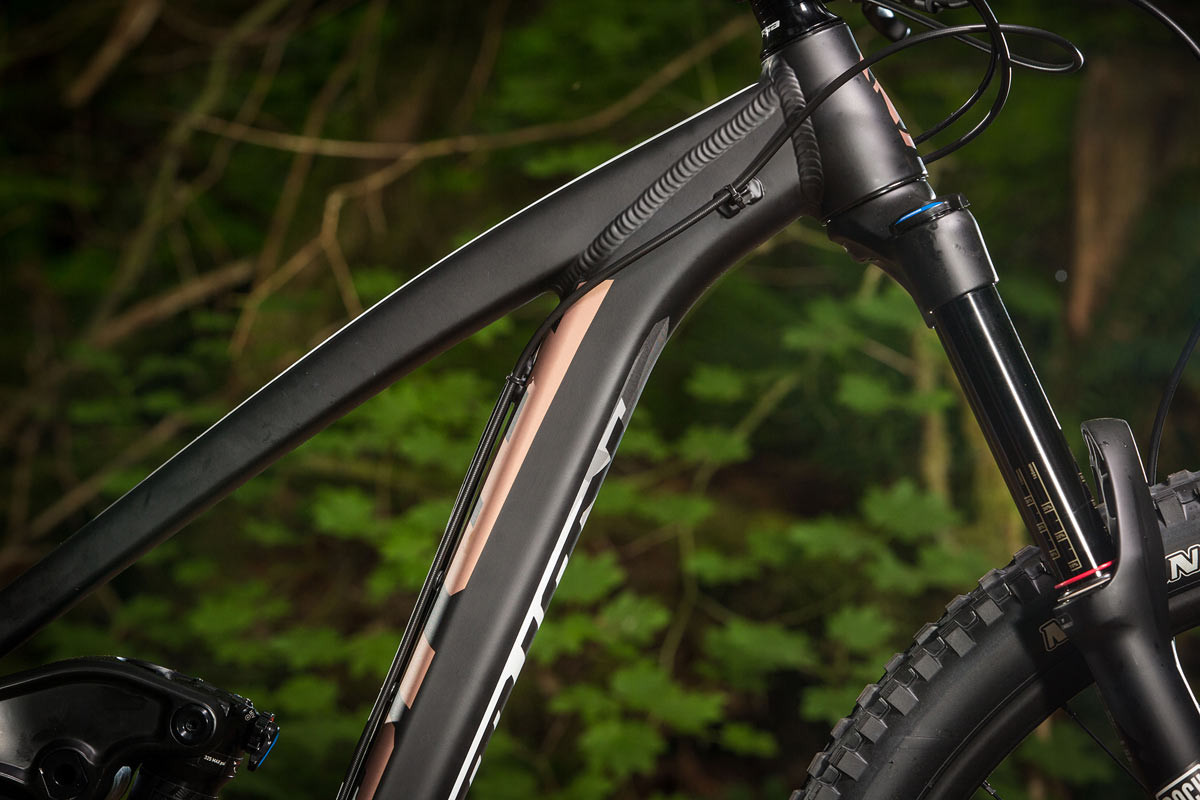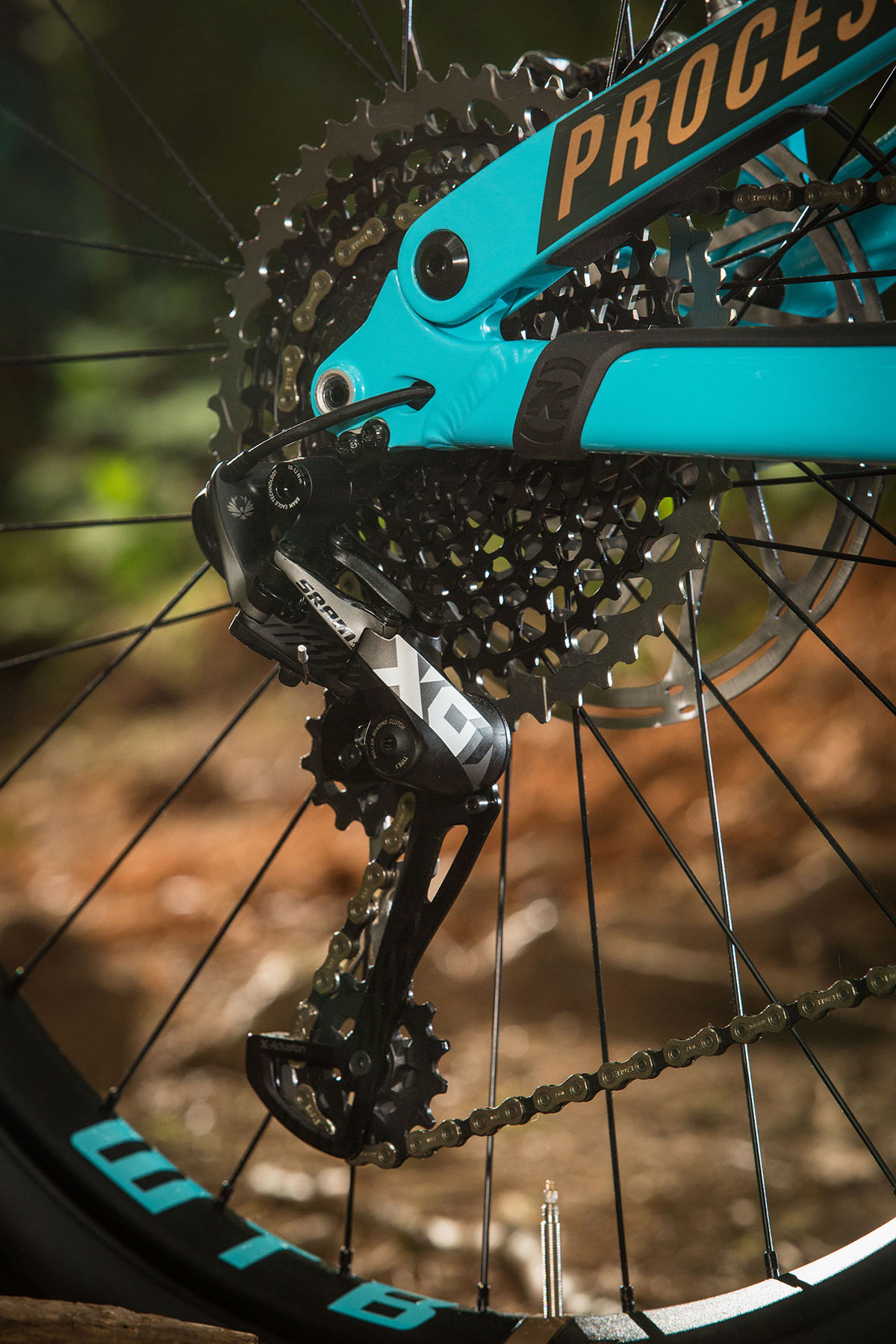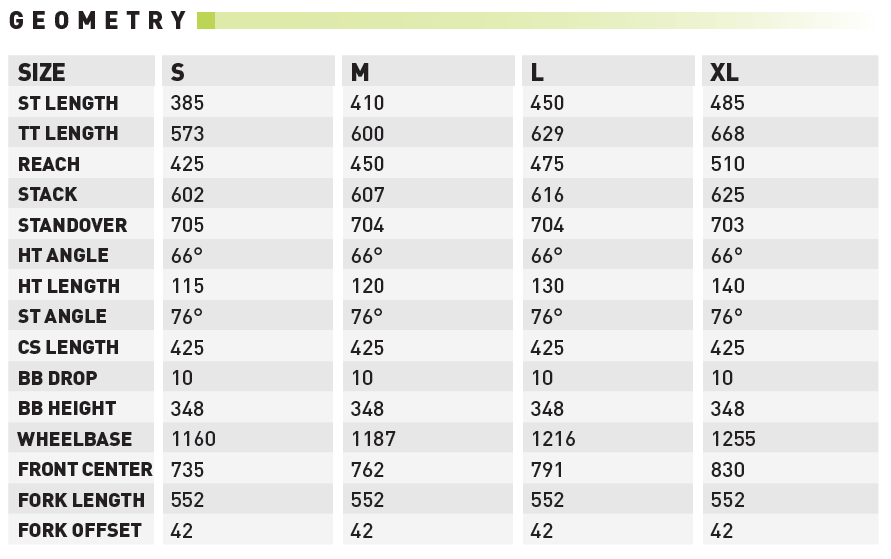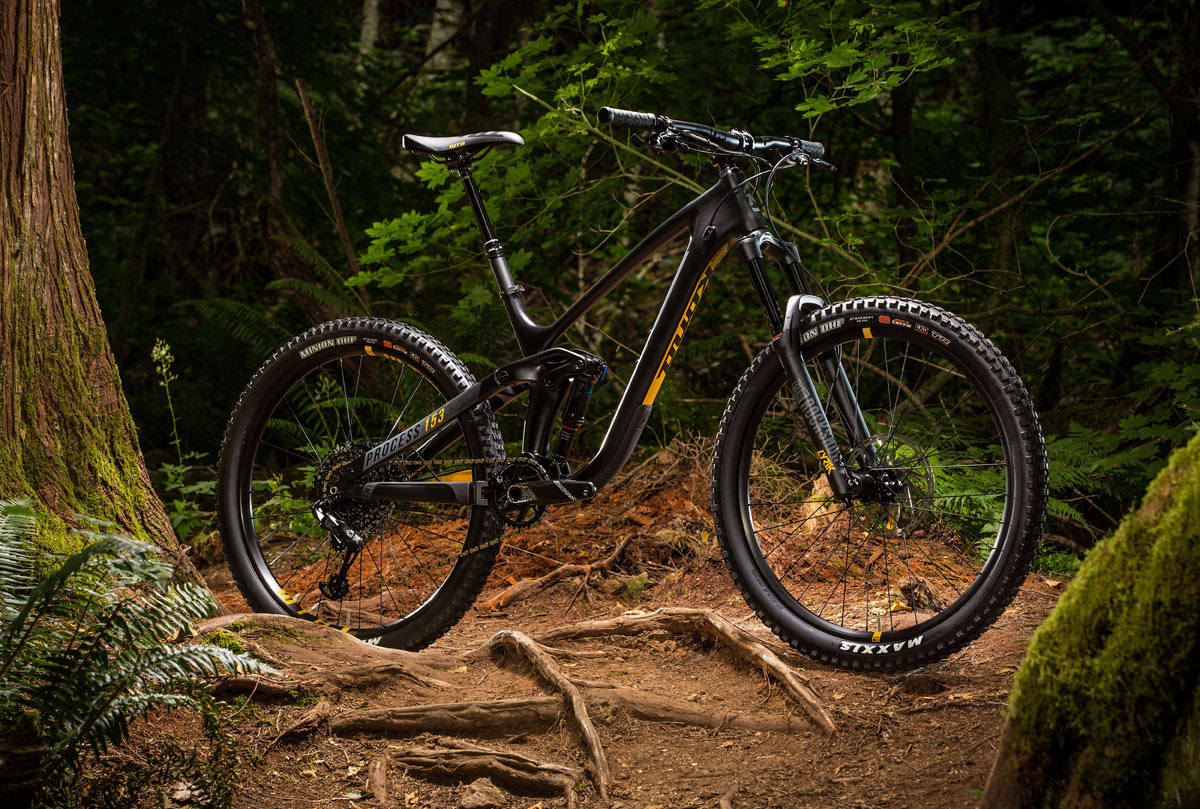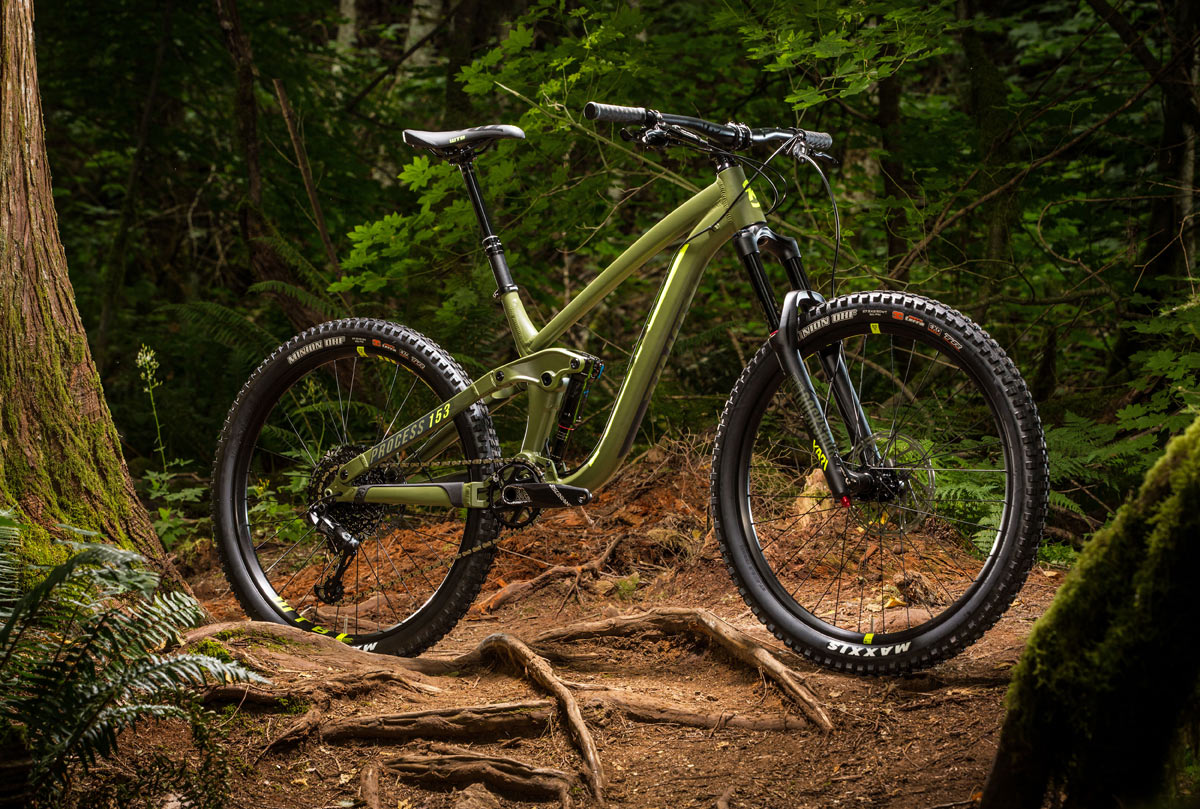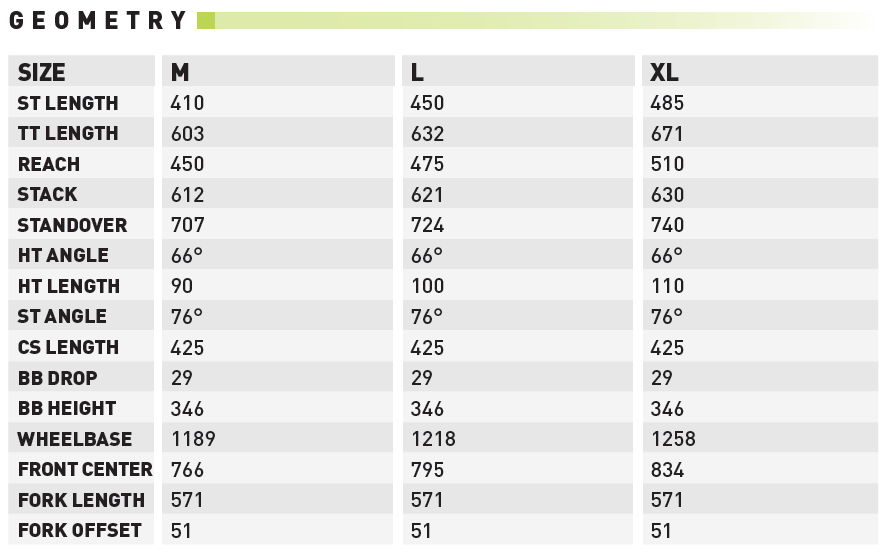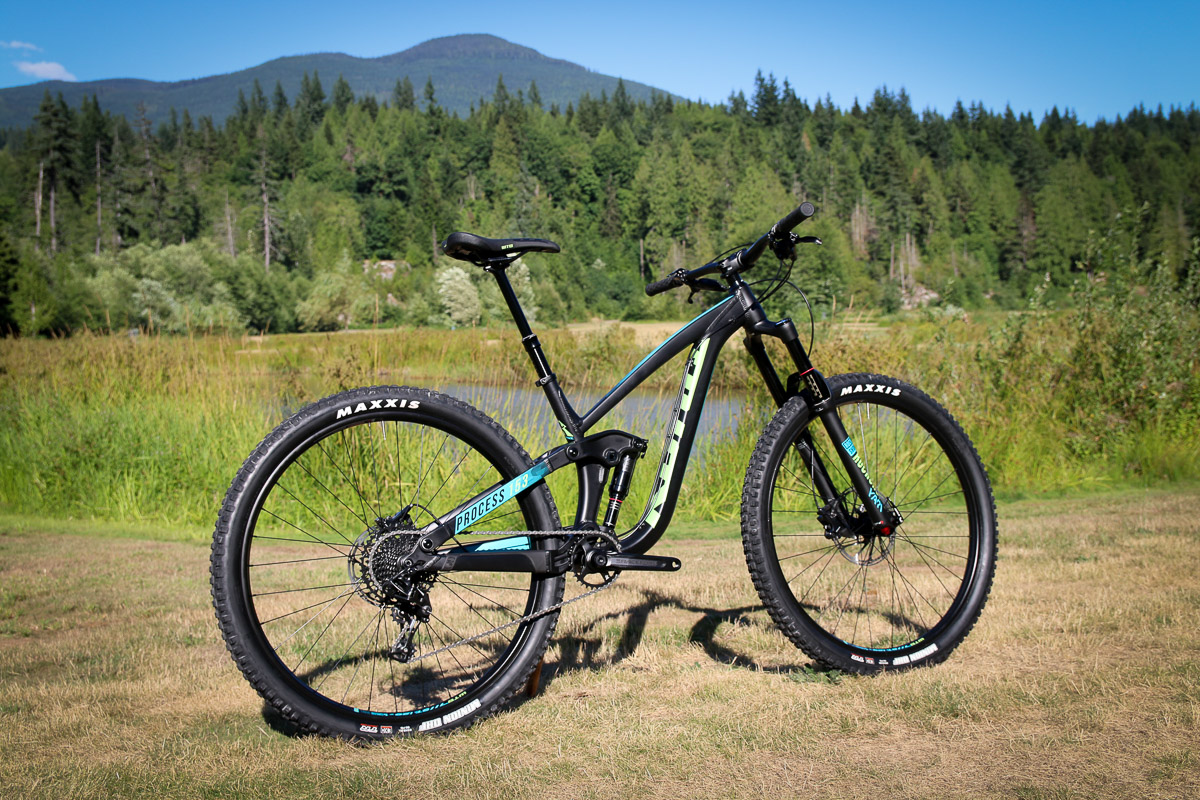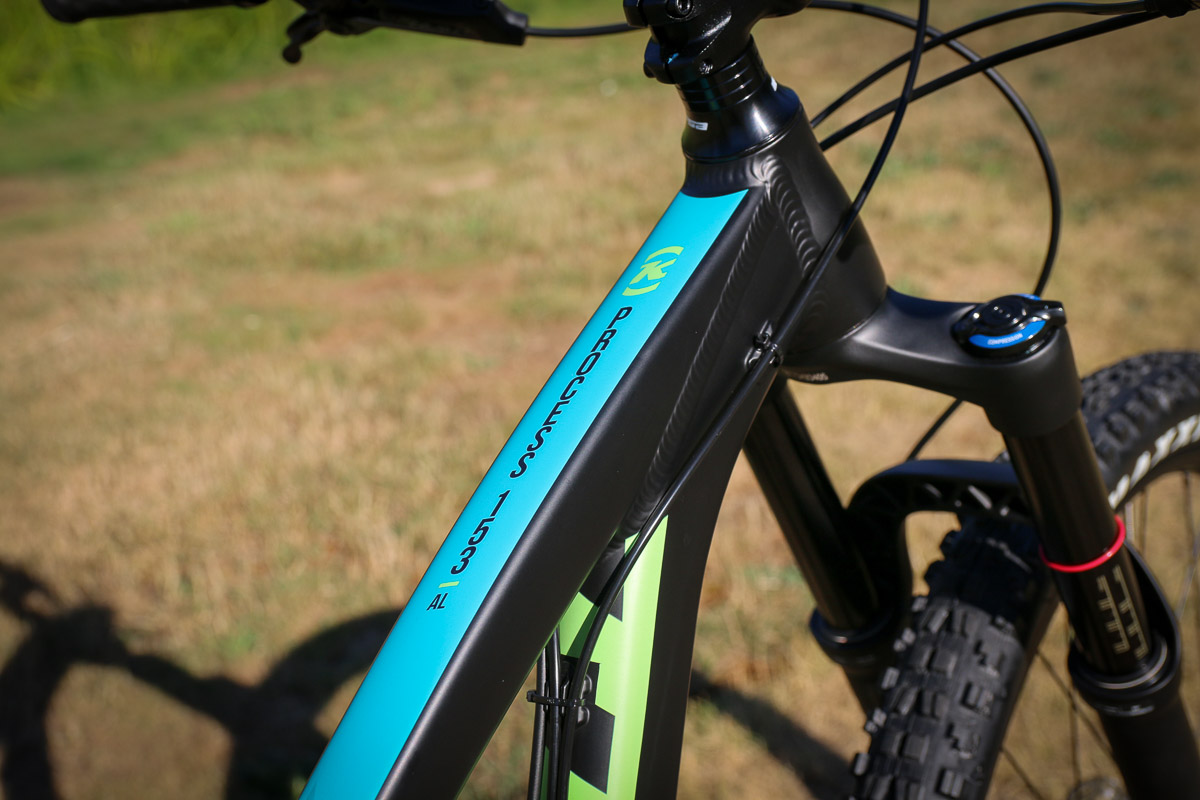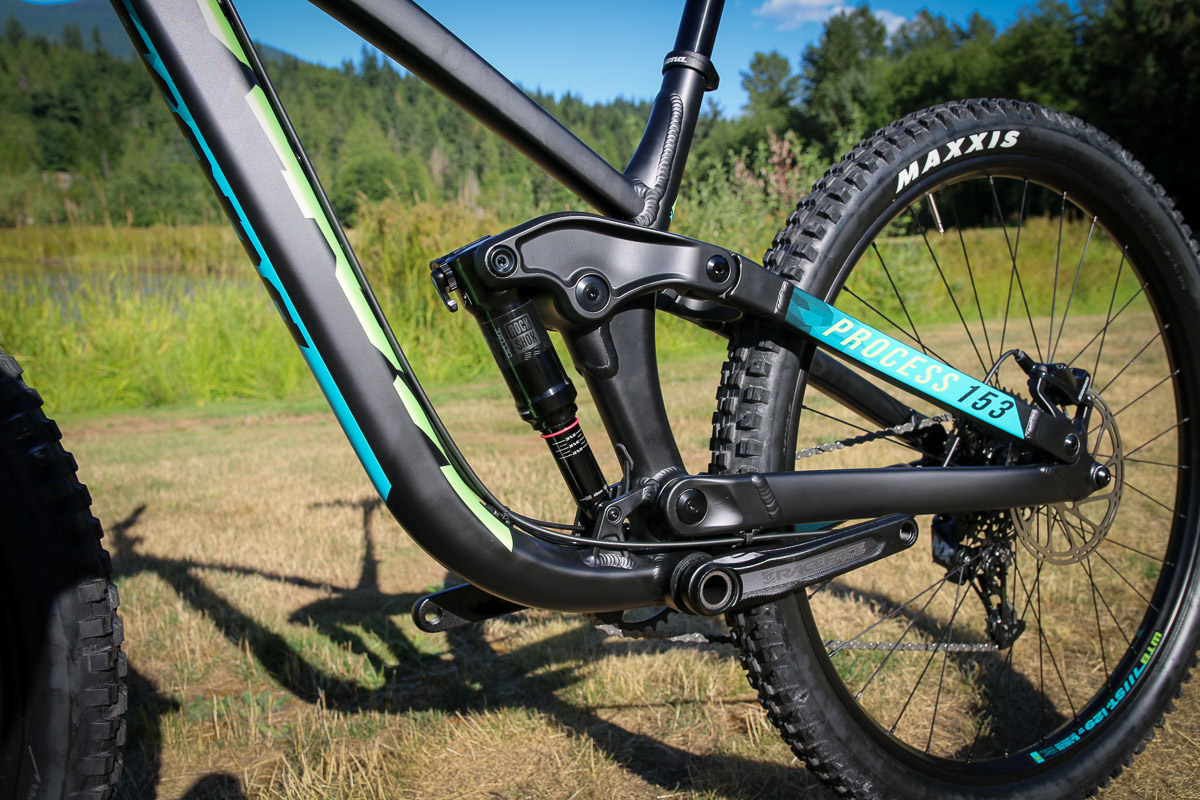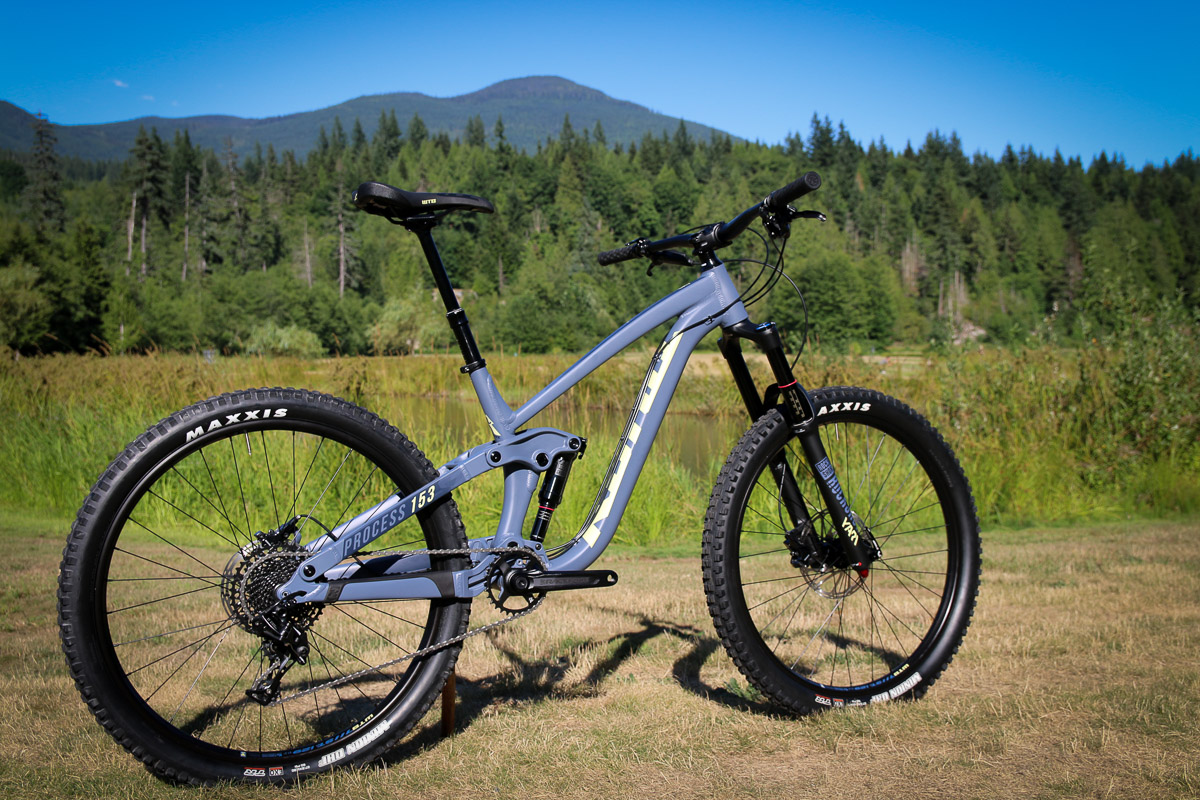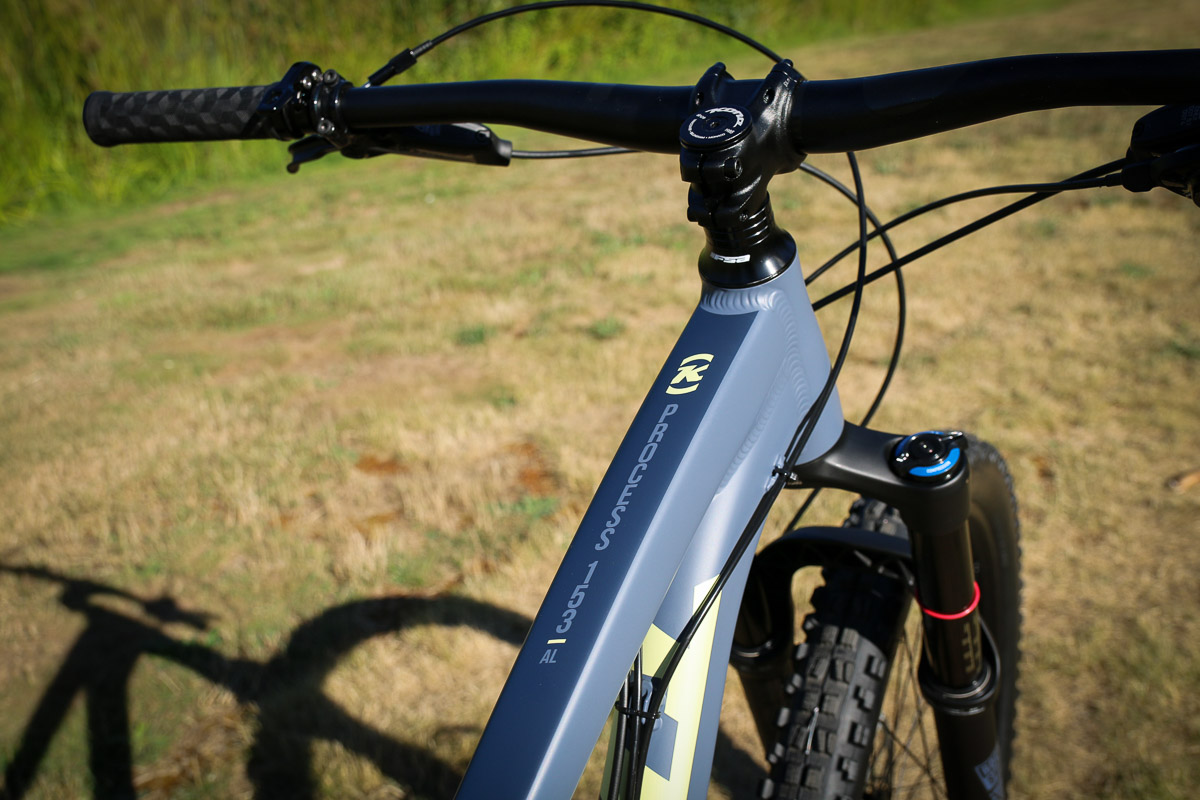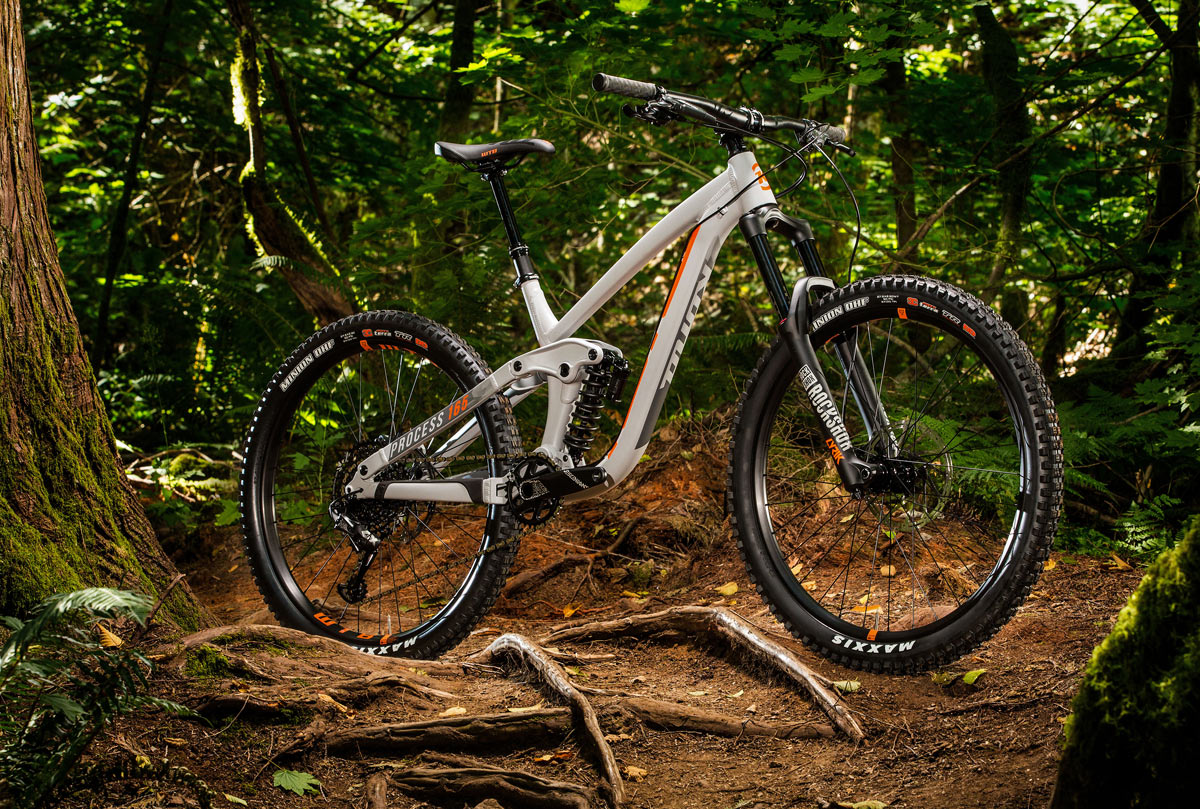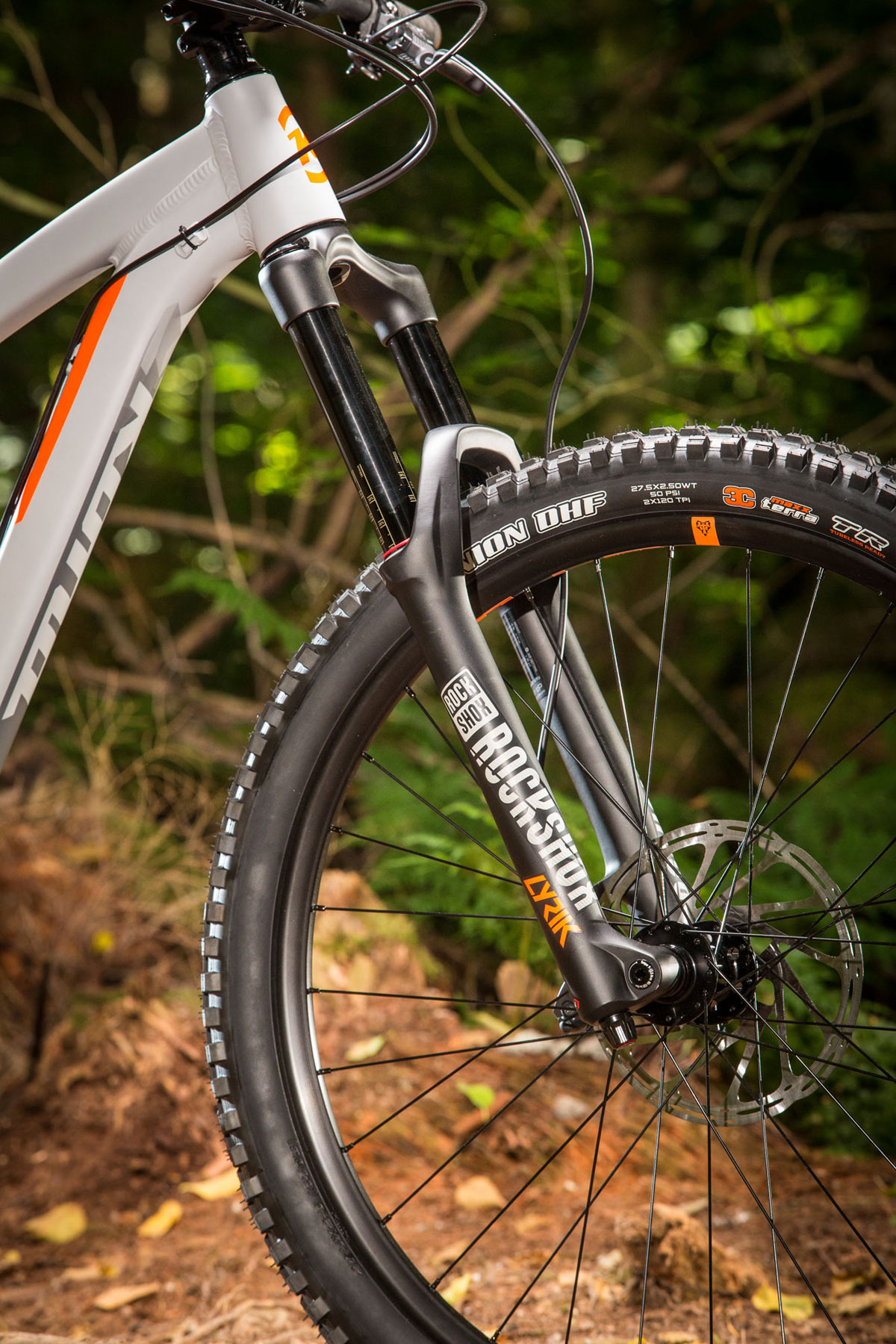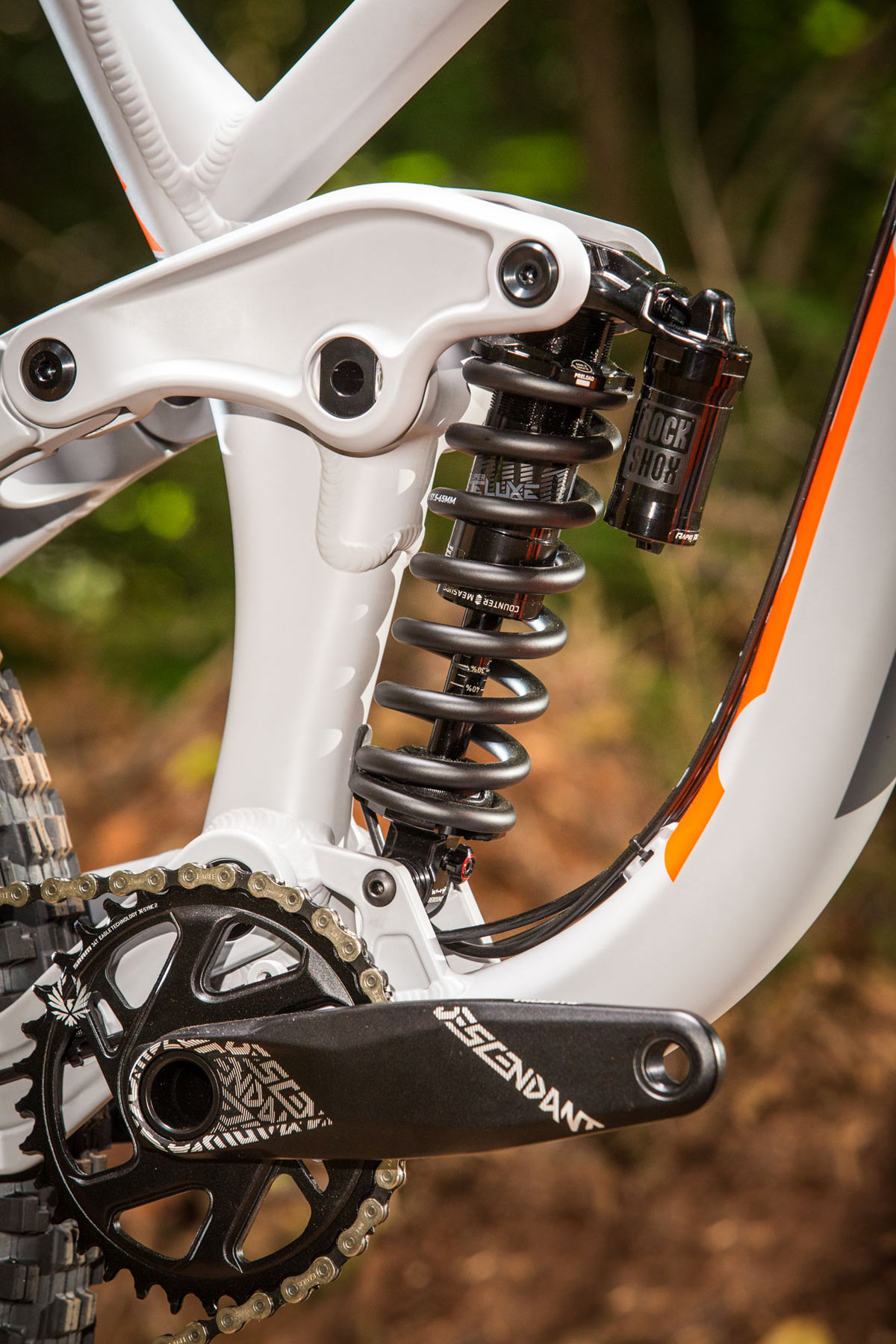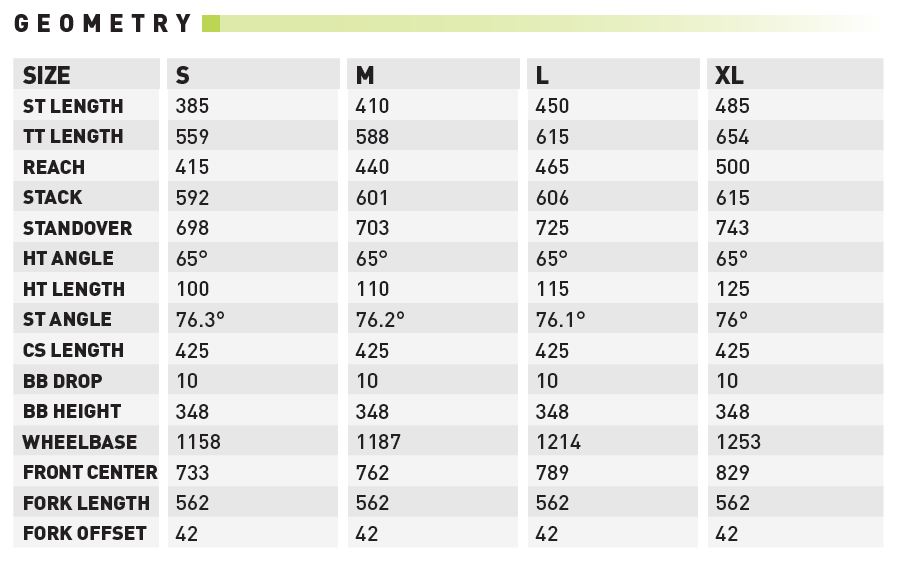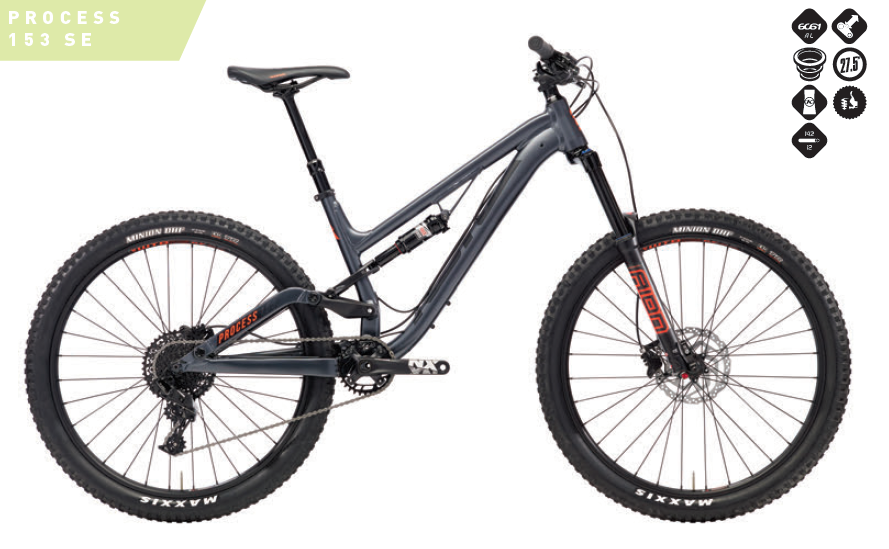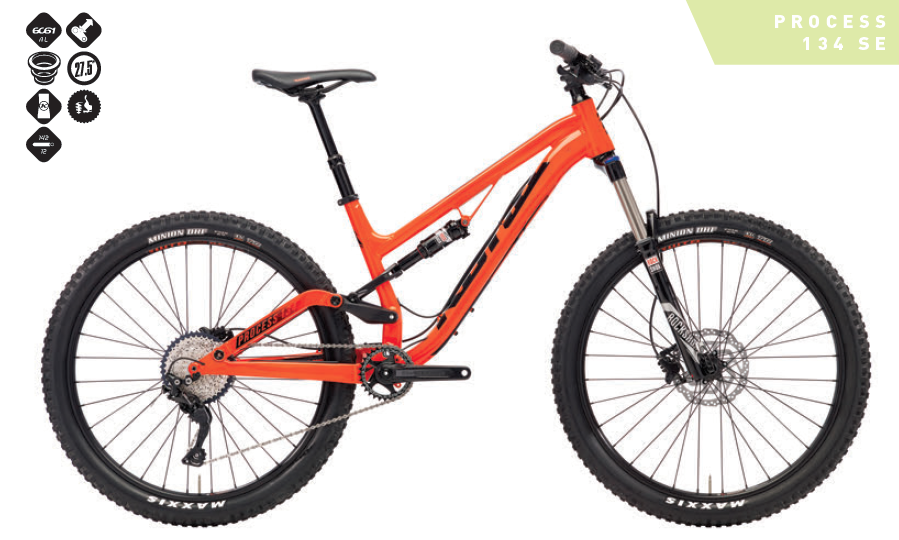Customers have been begging for it for years. Now it’s finally here – the all new Kona Process Carbon. More than just a carbon frame however, the Process gets a completely revised frame layout that allows it to take advantage of all the latest suspension improvements, while retaining the stiffness and ride quality Kona wanted for the final product.
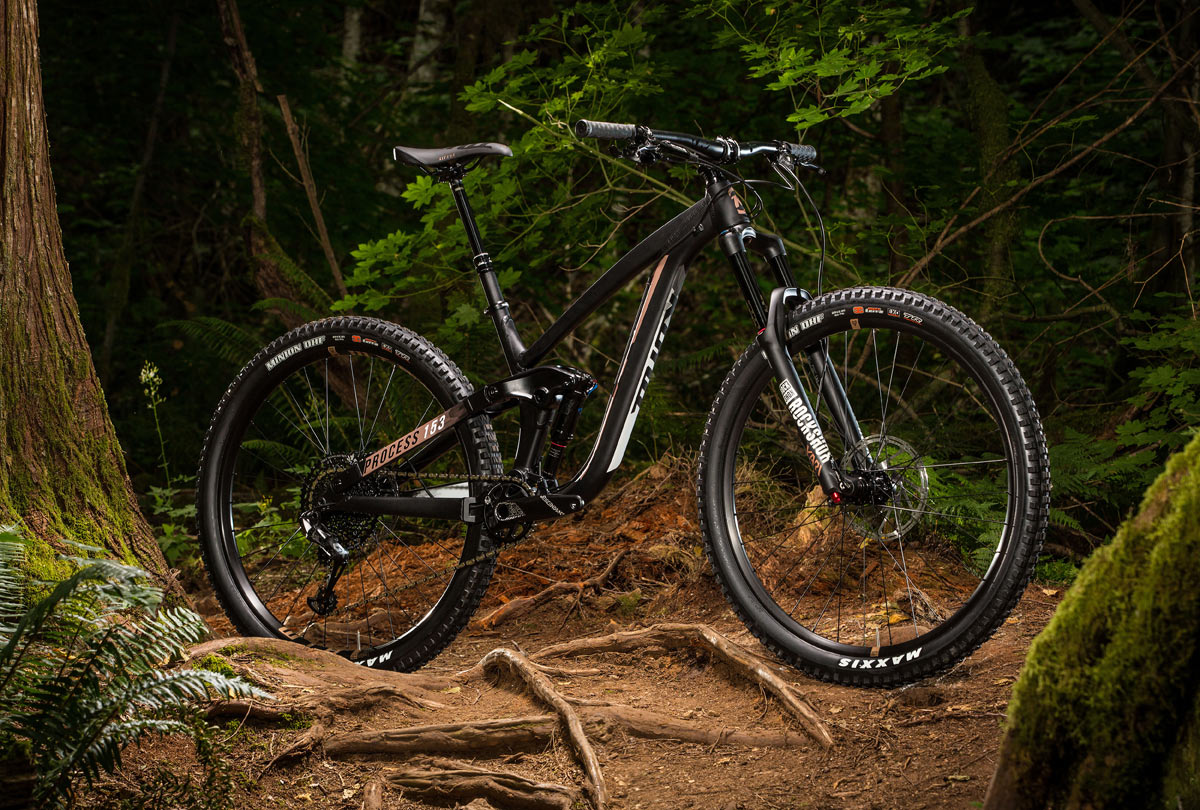
While the biggest news is the introduction of the carbon frame, Kona also has a few new aluminum Process models with bigger wheels and longer travel that also take advantage of the new frame design which continues the legacy of the process – a frame platform that first started taking shape in 2011.
When the first process finally hit the trails, it had nearly everything you could want from a modern trail bike at the time. It was long. It was low. It was slack. The suspension was fairly progressive and the frame still offered reasonably low standover. But as good as the original was, it still left a lot of riders asking where the carbon version was. And if you know Kona, you know that they didn’t want to build a carbon bike just to have one – it had to be built with purpose.
So, when it came to the new bike, Kona scrapped the old design and started with a blank slate. The new bike was to be completely modern, but in a way that stayed true to the success of the original. Carbon fiber may seem like the big takeaway from the new bike, but the real story is in the redevelopment in the frame and the new suspension platform. Moving to a trunion mounted shock that allows for a higher main pivot resulted in better anti squat that Kona says is more neutral than the old Process. The leverage curve has also been revised to be more progressive which allows for the use of coil shocks, but more importantly increases small bump sensitivity while climbing and the bike rides higher in the travel without wallowing. Climbing is also improved with a steepened seat tube angle which now sits at 76°.
To go along with the improved suspension kinematics, the suspension hardware also gets a boost with full bearings on all of the pivots and massive 20mm internal diameter bearings at the main and rocker pivots which Kona says should increase stiffness and durability. All of this while maintaining a low standover height and adding room for a water bottle inside the main triangle. The Process bikes also make use of a new three piece locking axle system for the suspension pivots. Rather than add the complexity of a collet system, this design relies on a male cap screw with a female bolt, and an M5 bolt that then locks the entire assembly together. Since the two thread pitches are different, Kona says that the mechanical interference will prevent the female bolt from backing out, and it doesn’t require any threads in the carbon structure.
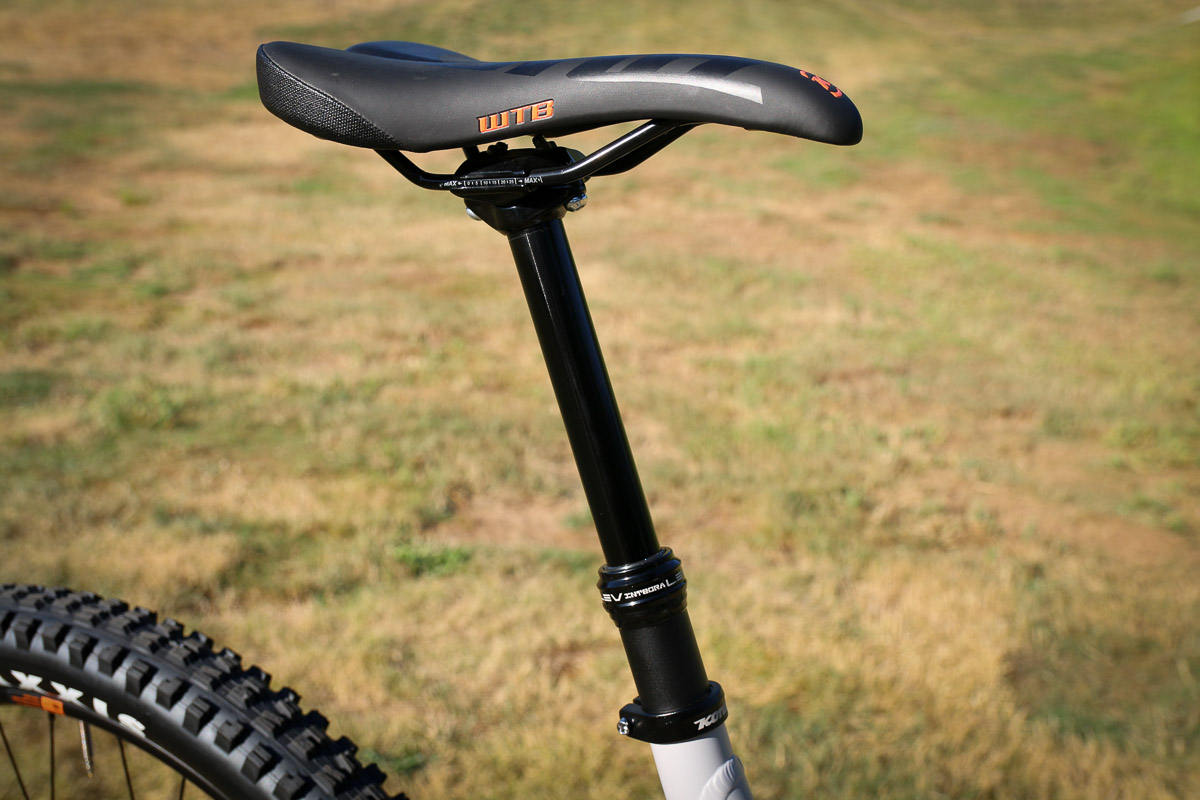
If standover height is important to you, then their ‘super deep’ seat post insertion will also be of interest. In order to allow longer dropper posts to fit inside the seat tube, the rocker was moved to accommodate fit concerns, and the bikes will ship with 125mm droppers for a small, 150mm droppers for a medium, and 170mm droppers on the large and extra large frames. With those sizes, every frame can run the dropper post completely bottomed out, and Kona says many riders on the medium or large could go up to 170 or 200mm droppers if needed.
Of course, no new enduro/all mountain bike is complete without Boost 148mm rear spacing, so all of the bikes run the standard – and all with aluminum chainstays and tooled thru axles. Even the top end carbon frames run aluminum chainstays. Kona says that the chainstay takes more abuse than any spot of the bike, and it also attributes to the smallest weight reduction by moving to carbon fiber of any part on the bike. Ironically though, Kona also says it’s more expensive to make the stay out of aluminum as it costs them double in tooling costs due to the multiple parts. But, it makes more sense to keep it aluminum, especially since this bike will see plenty of bike park use, shuttling, and general mayhem, so for Kona it’s worth the cost and a bit of extra weight.
While both carbon and aluminum models get chain slap protection for the chainstay, the carbon versions also get a rubber downtube protector.
Speaking of weight, while it wasn’t a top priority to lose weight on the new bike, the carbon Process is lighter than its aluminum equivalent from last year – to the tune of about 200g. The aluminum frames are actually a bit heavier, with frame weights quoted at 3,800g for aluminum and 3,000g for carbon, both in medium without a shock. With limited bikes to weigh at the time, this Process CR 153 27.5″ weighed in at 32.19 lbs (14.6kg) without pedals and with tubes.
For now, the carbon Process is only available in 27.5″ in either the CR or CR/DL builds. Both frames are 1x only with PF92 bottom brackets and ISCG 05 tabs, and like the full Process range, will clear a 2.5″ tire on a 35mm internal rim – though they’ll ship with a 2.5″ up front and a 2.35″ out back. Upfront, the frame runs a tapered head tube with 44/56 press in cups which are Angleset compatible if you want to run slacker than the new 66° head tube angle (65° for the Process 165) for the 160mm fork. The carbon bikes also get full internal routing similar to that used on the Hei Hei Trail which holds the housing in place to prevent rattles, and stores a spare derailleur hanger inside the frame in front of the lower shock mount.
29″ wheels are an option, but only in aluminum – for now. Kona has positioned the 29er with essentially the exact same geometry numbers and builds so you can choose your favorite wheel size, not your favorite bike or build. Of course that doesn’t count for the carbon option, but it still has the same geo numbers, just in aluminum. The only caveats to the ‘identical’ geometry is a 51mm offset fork for the 29ers, a shorter head tube – and no size small for the 29ers.
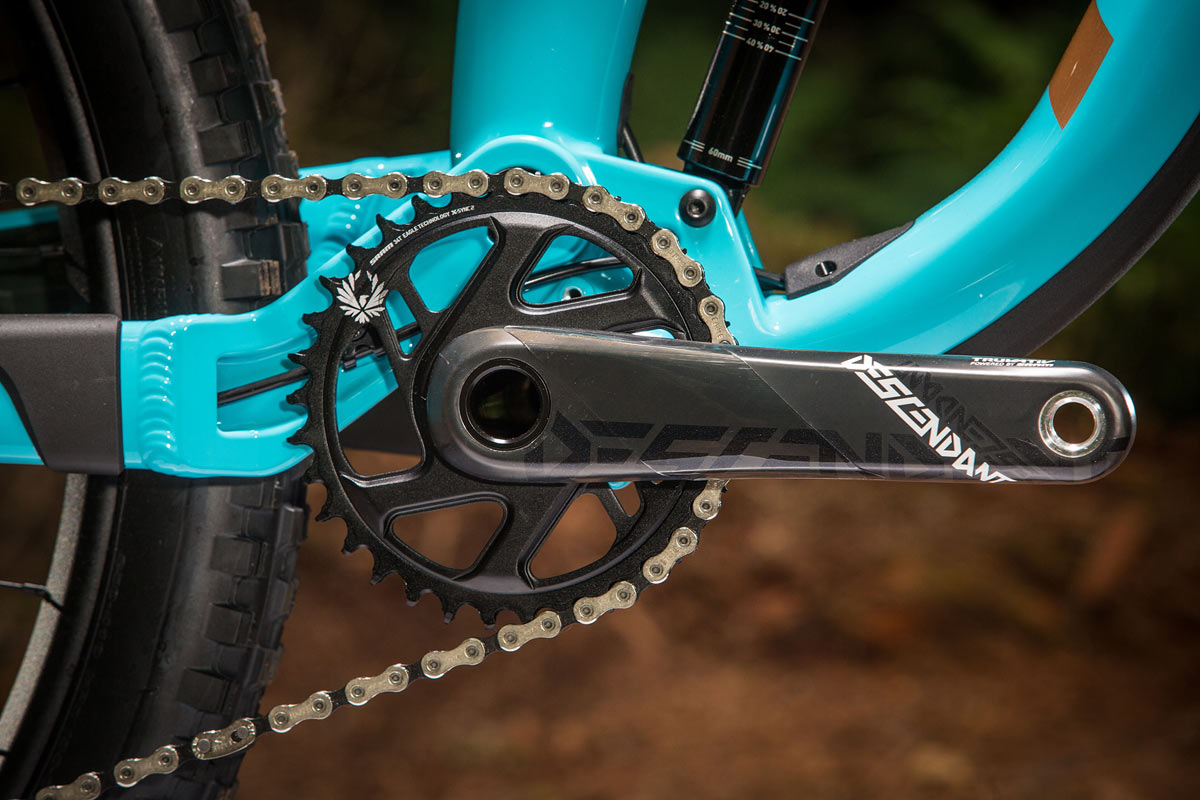
Process 153 CR/DL 27.5 – $5,999
Starting at the top, the Process 153 CR/DL 27.5 is the flagship carbon model with a full SRAM X01 Eagle drivetrain with Descendant carbon cranks, RockShox Lyrick RCT3 fork and Super Deluxe rear shock, and SRAM Guide RSC brakes.
Process 153 CR 27.5 – $4,799
Moving down a notch to the Process 153 CR 27.5 still gets you the carbon frame, but the parts drop a bit to a SRAM GX Eagle drivetrain with aluminum crank, RockShox Lyrik fork with Deluxe RT shock, and SRAM Guide R brakes to hit the highlights.
Process 153 AL/DL 27.5/29 – $3,599
Next up is the Process 153 AL/DL which moves to aluminum, and moves to the dual wheel sizes. Available in either 27.5 or 29″ builds, each has the same build kit with a RockShox Yari fork and Deluxe RT shock, SRAM GX Eagle drivetrain, and Guide R brakes.
27.5″ Geometry:
 29″ Geometry:
29″ Geometry:
Process 153 AL 27.5/29 – $2,999
The Process 153 AL is again available in 27.5 or 29″ wheels, and drops to a RockShox Yari fork and Deluxe RT shock, SRAM 11 NX/GX drivetrain, and Level T brakes.
27.5″ Geometry:
 29″ Geometry:
29″ Geometry:
Process 165 – $3,999
The oddball of the group is the Process 165 which is sort of their mini-DH rig with 165mm of rear travel mated with a 170mm fork. Like the other aluminum bikes, the 165 runs a 6061 butted aluminum frame and 27.5″ wheels only. The build highlights include a RockShox Lyrik RC fork, Super Deluxe Coil shock, SRAM GX Eagle drivetrain, and Code brakes. Also a bit of a standout – the 165 runs a KS LEV Integra dropper instead of the RockShox Reverb used on every other model for a very specific reason. Since this is essentially a pedal-able park bike, Kona wanted riders to be able to remove the dropper post easily to swap in a stubby rigid post for park days. Since the LEV is still cable actuated, it’s much easier to remove than the hydraulic Reverb. The 165 also moves to MAxxis DoubleDown DHF tires to make its intended purpose quite clear.
Process 134 SE & 153 SE
Still love the old Process and love a bargain? You’re in luck as the previous Process 134 and 153 carry through as SE models with value oriented builds, but the same Process capabilities the line was founded on. The Process 153 SE will sell for $2,199, while the 134 SE goes for $2,099.
Stay tuned, first impressions are up next.
